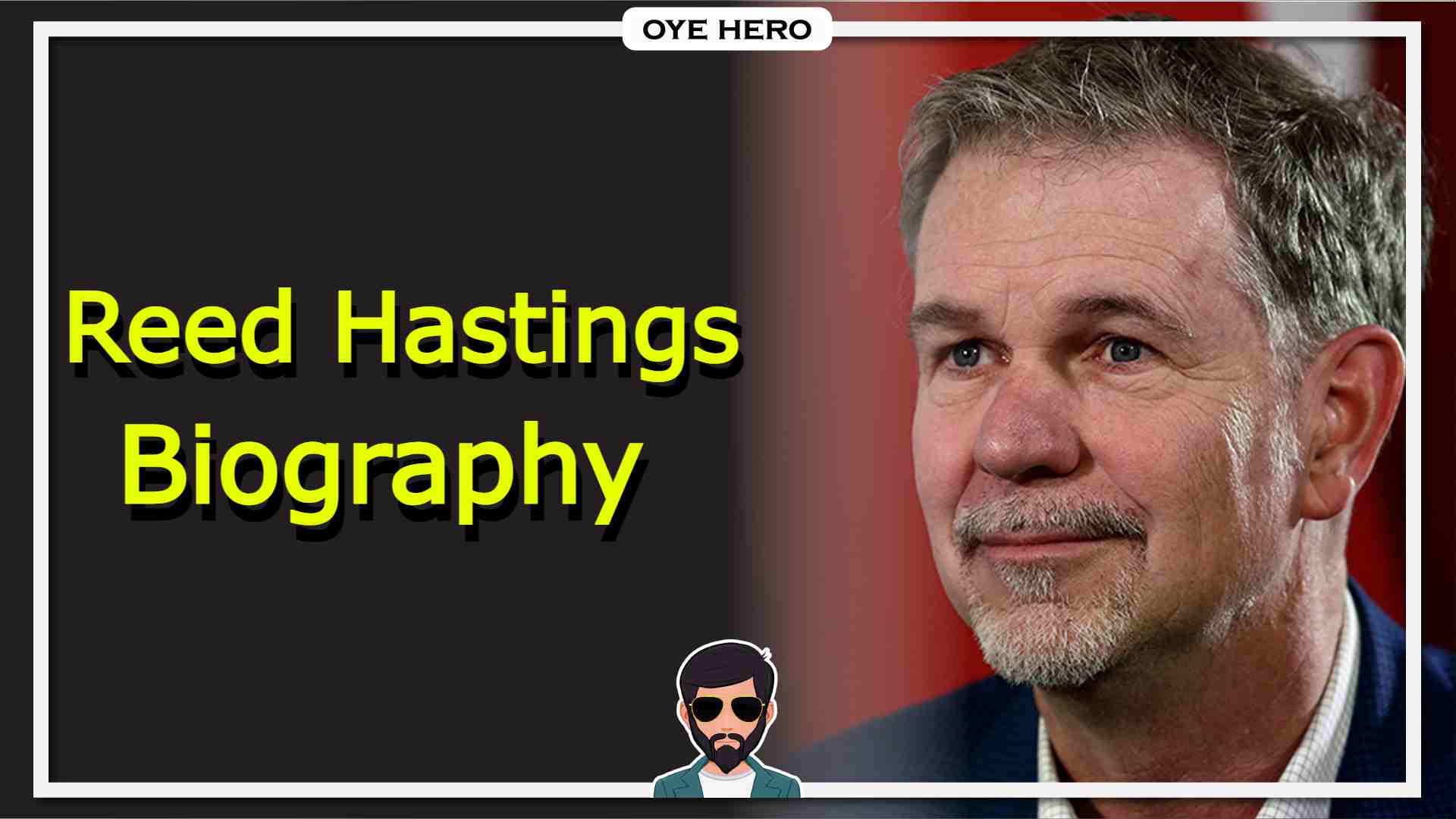Reed Hastings is an American entrepreneur who co-founded Netflix, an online movie rental service that offers on-demand online distribution media to users in a variety of countries.
The browser postal system, which began as a single subscription service in 1997 and is now available in countries all over the world, owes a large part of its achievement to its very imaginative co-founder Hastings, who thinks that taking measured risks is really the key to sustainable entrepreneurship.
He grew up to be a bright and adventurous young man, the son of a renowned Boston solicitor.
Table of Contents
Quick facts:
Age: 62
Born: 1960
Nationality: American
Title: Netflix founder
Net worth: 2.5B$
Marital status:
Children:
CEO of Netflix:
Later that year, Hastings was named CEO of the corporation. Patrons could rent each DVD for seven days initially, but by December, users could purchase a monthly subscription fee and rent an infinite number of DVDs.
Despite the fact that they could choose DVDs and manage their accounts via the Netflix website, DVDs were distributed and collected by mail in batches of up to three.
The next movie in the customer’s account list was automatically mailed after the DVD was forfeited.
Hastings grew Netflix through movie studio agreements and intensive marketing initiatives, stressing the service’s selection of indie films, biographies, and other films not readily available elsewhere. Netflix released its billionth DVD in February 2006
Trends in Netflix:
As Netflix grew, it became known for its creative management procedures, which were the product of Hastings’ “Freedom and Responsibility” culture.
Netflix is said to provide mediocre employees hefty severance packages to ensure that they continue to contribute to the company’s innovative culture. Employees at Netflix no longer have access to sick or vacation time; instead, they can manage their time off on their own.
By meeting with employees to discuss the company’s culture and employees’ thoughts about it, Hastings established an internal culture guide for Netflix.
Hastings made this internal culture guide public in August 2009, and it eventually became a pre-employment screening tool for weeding out incompatible candidates.
Hastings as a Philanthropist:
He is a very active benefactor in the field of education. He gave Beacon Education Organisation a million dollars to start additional charter schools.
He is also a part of the Technology Network, a political network of businessmen and executives. and Reed Hastings currently resides in the San Francisco Bay Area.
Netflix was co-founded by Reed Hastings, and it is a media renting service based on his original ideas. The bank’s facilities are offered in North America, South America, and New Zealand, among other places. Netflix had a subscription base of more than 65 million people as of July 2016.
Start-up of Netflix:
He wasn’t sure if the company would have any clients when he launched it, or if customers would understand the concept of creating online waits. Another thing that he was concerned about was his growth.
He wanted to start an entertainment firm, but in such a way that it retained its entrepreneurship culture. Netflix’s modern management tactics drew a lot of publicity as it grew quickly.
Employees were compensated at a higher rate than the market rate. Hastings instituted a slew of public legislation that had never been enacted before.
These included a large severance compensation for typical employees who were laid off, as well as the elimination of sick and vacation leave.
Hasting is a believer:
Hastings is an outspoken supporter of internet television. As a result, he began streaming movies and TV episodes to users’ laptops and PCs in 2007.
Hastings made various decisions in 2011 that resulted in fewer customers, canceled purchases, fewer subscribers, and lower stock prices.
Customers were further confused when Netflix announced two months later that it would split off its well-known DVD operation under a different moniker.
Hastings was requested to leave, but he refused, claiming that he started the company and that this was the first time in 12 years that it was experiencing difficulties.
Conclusion:
To be self-confident, you must do more than just hope for it. Rather, you must devote your time and resources to making it a reality.
I’m not suggesting you go into big debt, but you should invest at least as much in your goals as you did in that amazing pair of shoes you justified buying last week.
However, when you surround yourself with people who drive you to accomplish more, motivate you to really be great, and lead by example, you begin to see the limitless possibilities that lie ahead of you. Look for those individuals!




